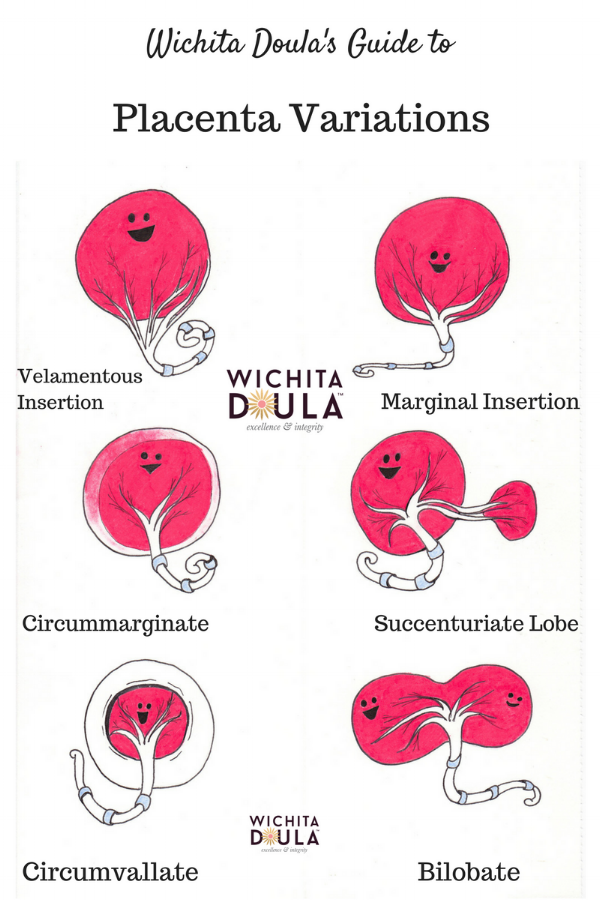5 Amazing Facts About Your Placenta
How much do you know about your placenta? You may have read a blurb about it in a pregnancy book, or a debate about it in a mom group. Unless you choose to take it home for encapsulation, chances are the hospital will dispose of it without a second thought. Let's take an educational look at the placenta and some of the most amazing facts about this special organ.
1. The Placenta Protects Your Baby
The placenta acts as a filter, passing carbon dioxide and other waste, away from the baby through the umbilical cord. But it's not like an air conditioner filter which traps the waste and hangs on to it. The waste is sent to the mother's bloodstream, so that her organs can process and dispose of it.
The placenta implants into the wall of the uterus, firmly attached by little vessels called chorionic villi. These form the connection to the mother's bloodstream.
Additionally, antibodies from the mother are passed to the baby in this way, creating passive immunity against some diseases.
2. Your Placenta Tells a Story
Each placenta is unique, and can provide information about your pregnancy and delivery. Our placenta encapsulation specialists love to walk parents through the process and show you how the placenta functions, the amniotic sac where your baby lay curled up for nine months, and the vessels of the umbilical cord. We are able to tell all sorts of things from our examination of the placenta, such as approximate gestational age, whether you delayed cord clamping, where your water broke, whether you delivered vaginally or via Cesarean, and more.
3. Placentas Come in All Shapes and Sizes
The average placenta is round, and about the size of a salad plate. A good rule of thumb: the placenta weighs about 1/7th of the baby (7 pound baby = 1 pound placenta). However, each one is unique just as each parent and baby is unique. We have seen all kinds of interesting placenta variations, from extra large to extra small, heart-shaped to bilobed, umbilical cords inserted through the membranes, and many others.
Original Happy Placenta Art by Sara Skiles: Do Not Copy or Reproduce
4. Your Placenta Takes Over Hormone Production
During pregnancy, your placenta is responsible for producing the complex interplay of hormones responsible for sustaining pregnancy, growing the baby, lactation, bonding, and more. They help your body smoothly undertake the necessary changes to stretch, make milk, and deliver a baby safely. How incredible that our bodies will simply grow an entire organ on demand just to accommodate the needs of pregnancy!
5. There's So Much You Can Do with Your Placenta
You don't have to let your placenta be reduced to medical waste! Even if you would prefer not to take it home, you can at least ask to look at it and appreciate it. Here are some other things you can do with your placenta:
- Encapsulate it. This is the most common use for the placenta. Our trained specialists will clean, slice, steam, dehydrate and turn your placenta into tiny gelatin capsules according to the highest safety and sanitation protocols. Taking these capsules in the early days after birth may be able to help you have a more balanced and swift postpartum recovery - after all, they contain all those hormones and vital nutrients! Learn more and reserve your placenta encapsulation specialist.
- Plant it. Choose a special tree or bush and plant it over the placenta. It will grow with your little one and be a sweet memory someday.
- Make art. The fetal side of the placenta is a smooth, shiny surface covered in a delicate array of vessels in the shape of a tree. By pressing a paper or canvas against it, we can create a beautiful and interesting keepsake.
- Donate it. Some research facilities rely on placentas to experiment with new treatment options for injuries and illnesses. Additionally, some police departments use donated placentas to train cadaver dogs to help solve crimes! If you do not wish to encapsulate, donating your placenta can be a great way to give it a second life that could possibly improve someone else's.
Photo by T.Marie. Property of Wichita Doula: Do Not Copy or Reproduce



